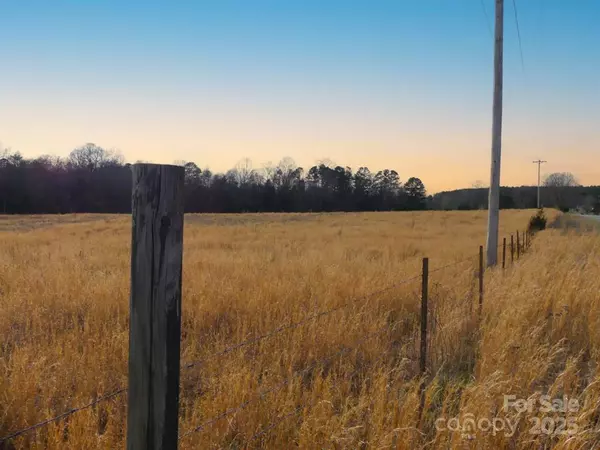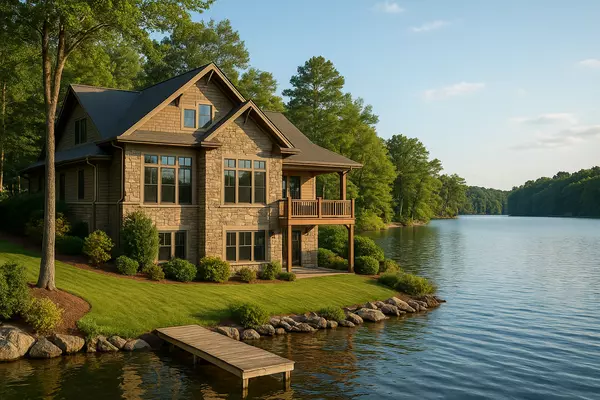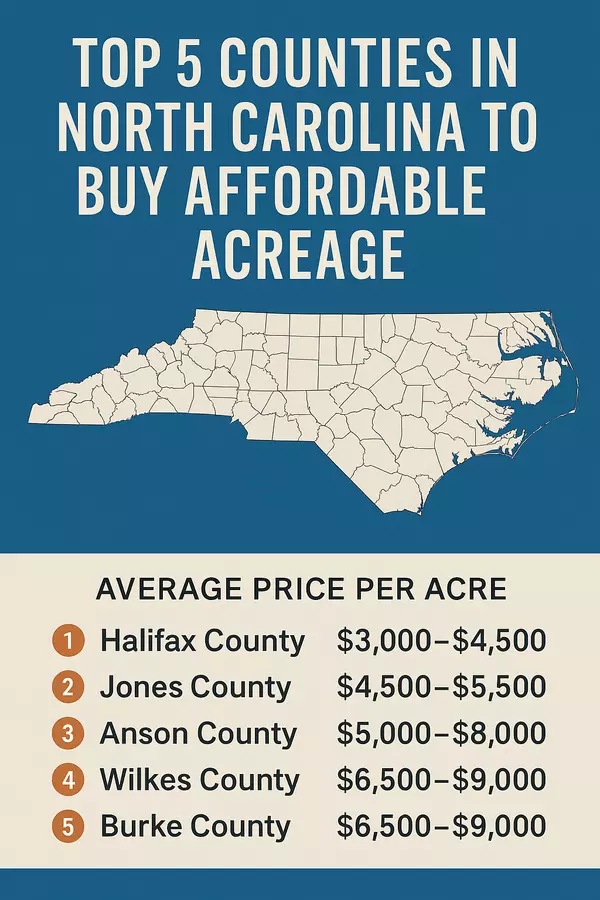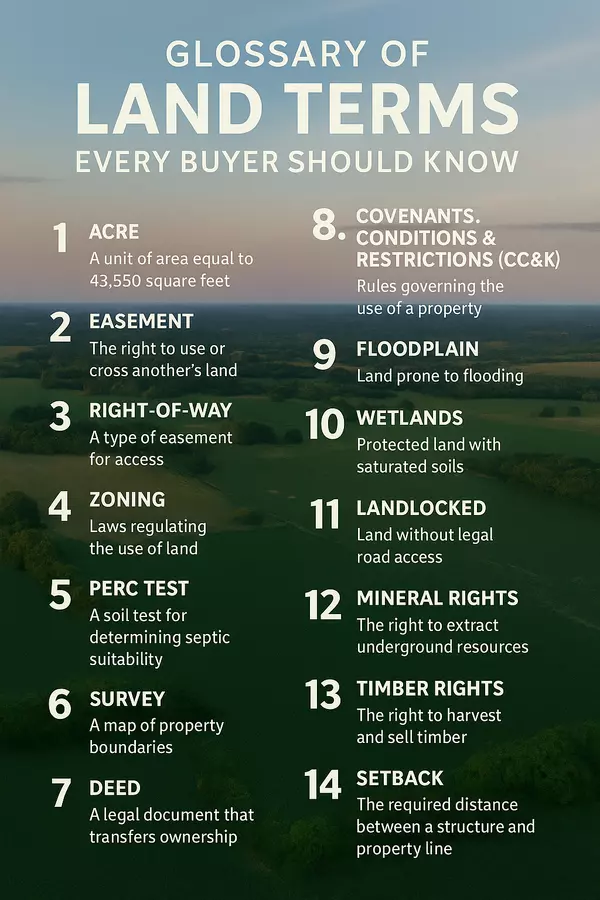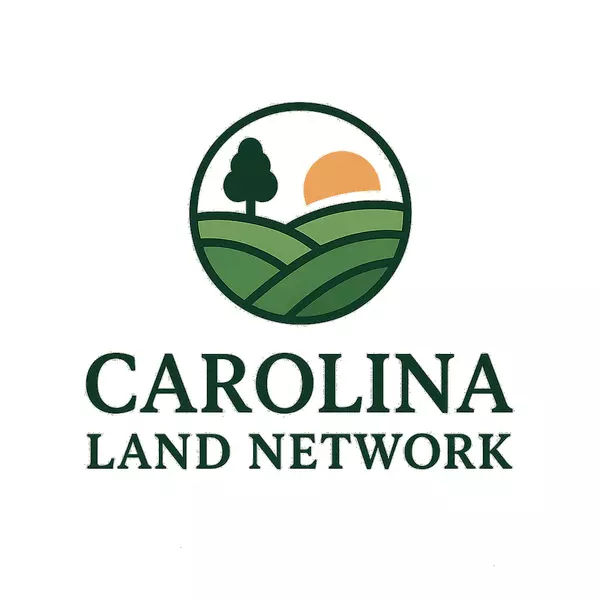Things to Consider When Buying a Waterfront Property in North Carolina
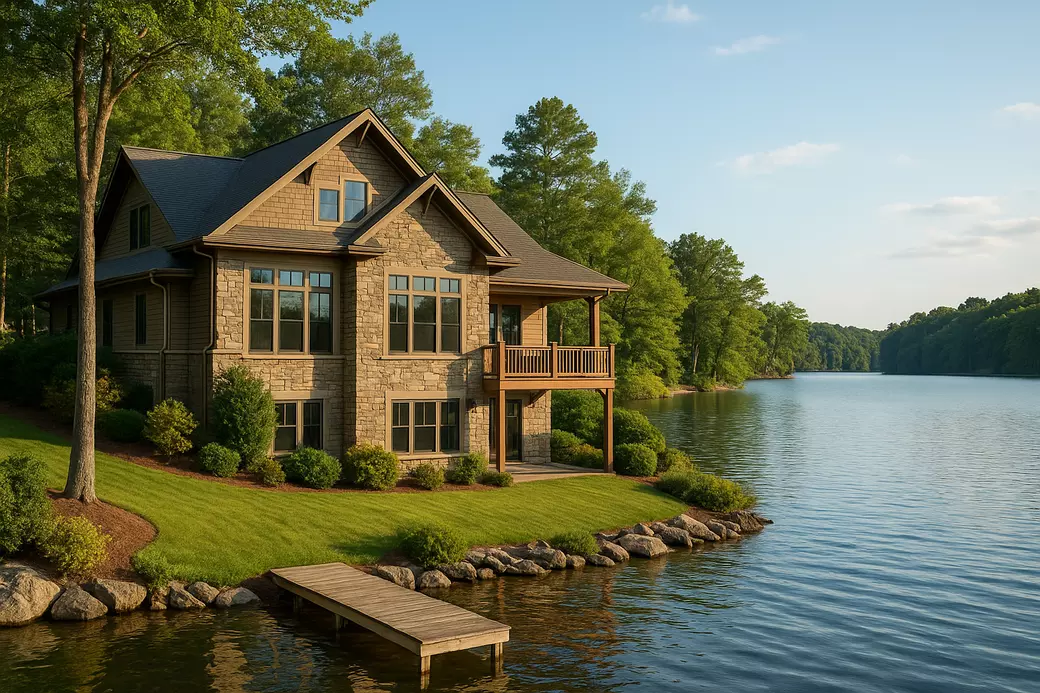
By Chris St. Clair, Owner - Carolina Land Network
Buying a waterfront property in North Carolina is a dream for many — whether it’s a mountain lake cabin, a riverfront retreat, or a coastal getaway. But owning waterfront real estate comes with its own set of challenges and considerations.
If you're thinking about making that move, here are some key things to keep in mind before diving in.
1. Type of Waterfront
Not all waterfronts are created equal — and the type of water makes a big difference.
-
Oceanfront (Wilmington, Emerald Isle, Outer Banks): Offers stunning views, but comes with hurricane risk, higher insurance costs, and stricter building codes.
-
Sound/Bayfront (Pamlico Sound, Currituck): Often more protected, with calmer waters, but may limit direct ocean access.
-
Lakefront (Lake Lure, Lake James, Lake Norman): Many are managed by private companies or municipalities and may have use restrictions or HOA guidelines.
-
Riverfront (French Broad, Cape Fear, Neuse): Great for peace and privacy but may come with erosion or flooding concerns.
-
Creek/Stream Frontage: Tranquil and scenic, but usually not suitable for boats or recreation.
Tip: Know how you plan to use the property (boating, fishing, swimming, relaxing) — and make sure the water access supports that.
2. Flood Zones & Insurance
Waterfront properties are often in or near flood zones — and that affects your insurance, risk, and sometimes even your ability to build.
-
Check the NC Flood Risk Information System (FRIS) here: https://fris.nc.gov/fris/
-
If the property is in a FEMA-designated flood zone (e.g., AE, VE), you may be required to carry flood insurance.
-
Some properties may require elevation certificates to determine exact risk and premium cost.
-
Even properties outside mapped flood zones can still flood. Always ask about flood history and drainage.
3. Shoreline Ownership & Access Rights
You’ll want to be crystal clear on where your land ends and what you can legally do near the water.
-
On lakes and reservoirs, the shoreline is often controlled by Duke Energy, the Army Corps of Engineers, or another managing agency. Docks, clearing trees, or improving the shoreline usually require permits.
-
Just because you have a “water view” doesn’t mean you own to the waterline or have private access — check surveys and recorded easements.
-
Riparian rights in NC allow you reasonable use of the water, but that doesn’t mean full development freedom.
4. Utilities & Septic
Rural and waterfront properties often operate independently from city utilities.
-
Water: Is the home connected to public water, or does it have a private well? Wells near surface water may need additional filtration.
-
Septic: Check the location of the septic system, current permit status, and whether it's safely distanced from the water.
-
Power/Internet: Double check availability. Some remote waterfront areas have limited broadband options or overhead utility lines that may be vulnerable in storms.
5. Maintenance & Long-Term Upkeep
Waterfront homes require more upkeep — plain and simple.
-
Salt air (on the coast) causes corrosion, especially to HVAC systems, hardware, and windows.
-
Moisture leads to rot, mold, and mildew — check under the home, especially in crawl spaces or basements.
-
Docks, retaining walls, and bulkheads need regular inspection and maintenance.
-
If the home is in a high wind or flood zone, make sure it has proper storm protection in place (e.g., impact windows, reinforced roofing, flood vents).
6. Local Regulations, Zoning & Permits
Depending on where the property is, multiple levels of regulations could apply:
-
In coastal areas, the Coastal Area Management Act (CAMA) may require a permit for construction or changes within 75 feet of the shoreline.
-
Even inland, local zoning rules may restrict dock size, tree removal, rental use, or additions.
-
HOAs and lake governing bodies can have their own rules about shoreline use, appearance, and rentals.
Always verify what’s allowed before you buy — not after.
7. Connect With the Right Real Estate Broker
This part matters more than most people think.
Waterfront property isn’t like buying a regular home in town — it’s more nuanced, and not every agent understands the details. From flood zone risks and septic inspections to dock permits and shoreline rights, there’s a lot that can go wrong if you don’t have someone experienced in your corner.
At Carolina Land Network, we specialize in rural and waterfront properties across North Carolina. We’ve helped dozens of buyers navigate everything from lake homes to riverfront acreage, and we know what to look out for before you make a costly mistake.
We’re not just here to unlock doors — we’re here to help you make smart, informed decisions that match your goals.
Final Thoughts
Buying a waterfront property in North Carolina is one of the most rewarding moves you can make — but it pays to be prepared. Every body of water is different, every property is unique, and the small details matter.
If you’re thinking about buying a lakefront, riverfront, or coastal property, give us a call. We’ll help you find the right fit — and make sure no surprises are hiding under the surface.
Carolina Land Network
📍 Based in Rutherfordton, NC
📞 (828) 447-8846
🌐 www.StClairHomeandLand.com
Categories
Recent Posts
